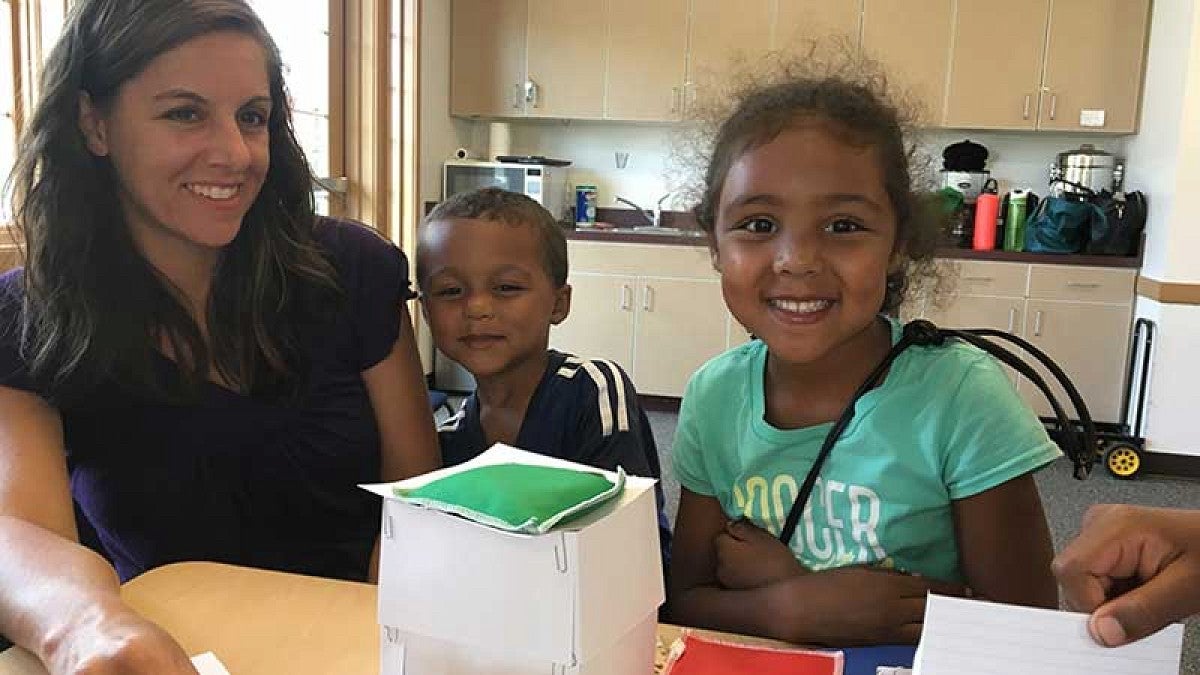The UO’s Museum of Natural and Cultural History will help address some of the emerging concerns over education equity in the pandemic era through a new, largely offline educational outreach project.
Using a $93,000 grant, the museum will develop and distribute thousands of science- and culture-focused activity kits to Lane County students, ages 6 through 12, beginning this fall. The project is designed to support learning and social connection among students who are isolated from peers and traditional learning spaces due to COVID-19.
Known as Museum Connection Kits – Inspiring Stewardship for our Collective, Past, Present and Future, the project will emphasize service to children who are without internet access while also serving those who receive online instruction but lack opportunities for guided, hands-on learning. It is funded by the Institute of Museum and Library Services through a CARES Act Grants for Museums and Libraries, a federal program that supports museums and libraries in responding to the coronavirus pandemic.
The kits, which will be Spanish/English bilingual and free of charge, will guide students through a variety of experiments, engineering challenges, craft-making and other hands-on activities they can complete entirely offline.
“Oregon’s recent move to online learning carries the risk of exacerbating already persistent inequities in Lane County,” said Ann Craig, public programs director at the museum. “This project aims to serve the communities most at risk, particularly low-income, rural and migrant students, and those whose families are navigating houselessness.”
The museum will work with project partners to deliver the kits directly to underserved students, with a particular focus on students who lack internet connectivity. Key partners include the Eugene Public Library, Springfield Public Library, Connected Lane County, Eugene Springfield NAACP, St. Vincent de Paul’s First Place Family Center and Centro Latino Americano.
Over the summer, the museum piloted the approach with Engineer It!, a take-and-make kit focused on Native American engineering and architectural technologies. More than 3,000 kits were distributed statewide through 53 participating public libraries.
“The demand for the program was remarkable,” said Mia Jackson, the museum’s educational outreach coordinator. “With the help of our library partners, we were able to serve families from Scio to Sutherlin to Stanfield — really, in every corner of the state.”
For the year ahead, the museum will create four new kit themes ranging from environmental science to civil rights to paleontology, each one including a variety of learning activities. Throughout the project, the museum and participating libraries will host a monthly online event that includes a “show and share” gallery where students can display and discuss their completed activities, as well as a live question-and-answer session with a scientist or other expert.
Students without internet access will be invited to exhibit their creations at the museum or one of the partner libraries.
“A key concern with social distancing and remote learning is the loss of opportunities for connection,” Craig said. “These culminating events are designed to provide those kinds of opportunities.”
The CARES Act program from the library and museum institute will award a total of $13.8 million in federal funds to U.S. museums and libraries this cycle.
“COVID-19 has not only created a public health emergency, but it has also created a deep need for trusted community information, education, and connection that our libraries and museums are designed to provide,” said Crosby Kemper, director of the Institute of Museum and Library Services. "These institutions are trusted spaces where people can learn, explore and grow. IMLS is proud to support their initiatives through our grants as they educate and enhance their communities."
–By Kristin Strommer, Museum of Natural and Cultural History


